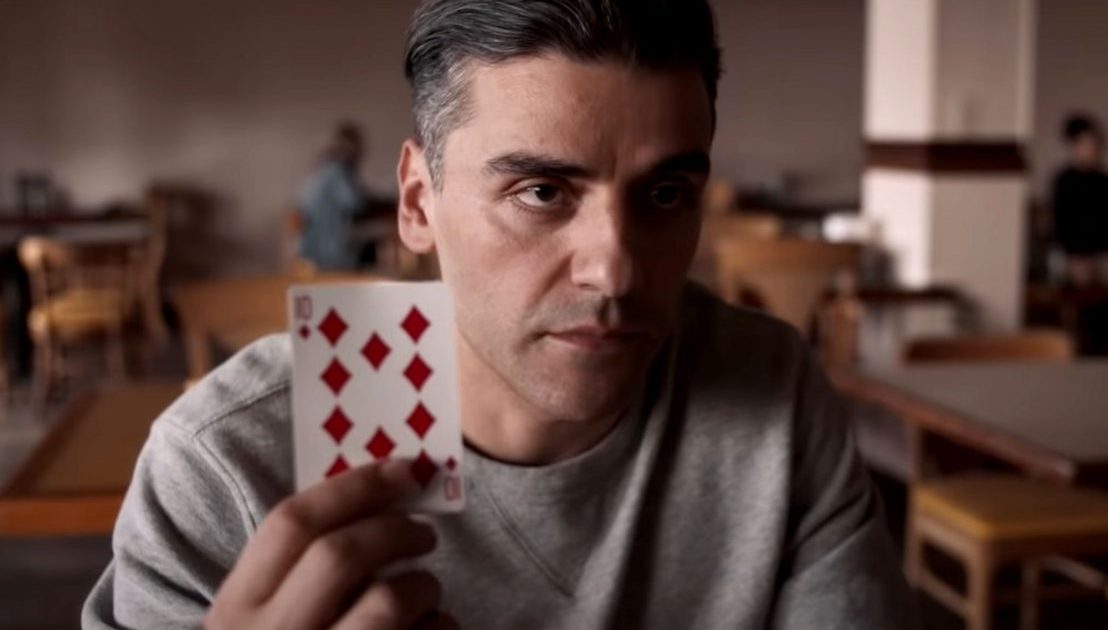The Venice Film Festival recently screened director Paul Schrader's new movie "The Card Counter" starring Oscar Isaacs, Tiffany Haddish, Ty Sheridan and William Defoe.
The film achieved relatively high ratings, reaching 87% on the "Rotten tomatoes" website, and is currently being shown commercially around the world, to present us, contrary to its title, a film that is not about a cheating gambler, but rather a new testimony against Abu Ghraib prison.
Abu Ghraib through the eyes of his jailers
"Card Counter" is about William Tell, a professional gambler, who lives his life on the move between small towns, lives in wretched inns, gambles in casinos, earns mediocre winnings, then leaves for the next town and so on, lifeless and unmotivated. Not even an ambition to get rich, until he meets on one of his tours a young man named Kirk to become the key that makes us look back into the horrific past of Little.
William and Kirk's father have a common past, as they both worked at Abu Ghraib as US Army conscripts, and actually brutally tortured prisoners.
When the matter of Abu Ghraib was revealed around the world, he came forward as a scapegoat for the great leaders, and was imprisoned in a military prison for a large number of years, during which time they felt guilt and self-confrontation. who escaped scandal and imprisonment - despite being the main instigator of torture - to take revenge on him.
From here begins the point of meeting between Kirk and the elderly Bill Tell, who is trying to improve the life path of the young man, and give him the money necessary to start a better future away from his fate and his father, and during that we learn the story of the Abu Ghraib soldiers.
Revenge is in the cards.
Oscar Isaac, Tiffany Haddish, Tye Sheridan and Willem Dafoe star in #TheCardCounter.
In theaters now: https://t.co/Q8LXlzW9ew pic.twitter.com/5hEnougYOi
— The Card Counter (@CardCounterFilm) September 20, 2021
The descent into brutality
The film was based on a new view of what happened in Abu Ghraib prison. Contrary to popular belief, the soldiers' abuses, torture and assaults are not individual operations, but rather the result of exercises by army commanders, who trained the recruits on ways to pressure the prisoners until they brought out the most brutality possible.
William Kirk explained this process with what he called "Tilt", an expression in the English language that means descent or drift, explaining the pressures to which the soldiers were subjected, and how they were swept under the burden of these exercises, pressure and anger, opening the door to the most brutal aspects of their souls without any restraint or control, Which turned them into tormenting predatory animals.
Bill Hill did not attempt to cleanse himself of his actions, even after he was imprisoned for it. His punishment, which he chose for himself, was to live under its burden and self-flagellation because of it, but at the same time condemns the leaders who trained him to do them, and the American government that rewarded these leaders and preserved their secrecy.
The score soundtrack for #TheCardCounter, featuring new music by @BRMCofficial & Giancarlo Vulcano, is out now.
🎧: https://t.co/N2TKgqE3Qj pic.twitter.com/Hpgc9fC3ho
— The Card Counter (@CardCounterFilm) September 19, 2021
Paul Schrader and the Concerns of the Unknown Soldier
Before beginning his career as a film director, Paul Schrader became famous for co-writing 4 of the most famous films of American director Martin Scorsese, one of which is considered one of the best in the history of cinema, "Taxi Driver", and "Card Counter" and "Taxi Driver". It revolves around a main character with almost the same structure.
They are two men returning from the army, who, due to the pressures of war and cruelty, turned into obsessives, one of whom rejected society and worked in driving taxis only at night away from the pressures of day life, and the other devoted his life to gambling, rejecting emotional and family relationships.
Then each of the two heroes chose to perform a violent act against a political or military leader, expressing the same point of view, that they were nothing but pawns in the hands of more powerful high politics, and after their combustion it was their turn to achieve their last revenge.
But despite the fact that the construction of the two characters is close and the screenwriter is one, there is a big difference between the two films due to the same director, and Martin Scorsese's artistic vision, which added to the story different dimensions that made the film in the lists of the best ever.
Paul Schrader's movie was distinguished greatly due to the performance of Oscar Isaacs for the main character and his preservation throughout the time on his expressionless steel face, except for his eyes that carried the pain, guilt and torments of the past whenever he remembered Abu Ghraib and his events.
In the end, this prison remains a brutal chapter in human history, showing the extent to which a person’s cruelty to his fellow man might reach if his anger and abilities were left unleashed away from the restrictions of modern civilization, and despite the large number of American films that dealt with what happened in Abu Ghraib, the filmmakers Americans still have a lot to say about this unforgettable stigma.

